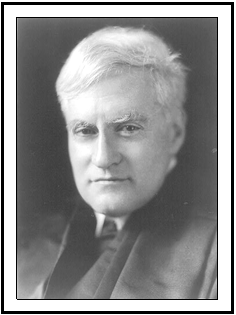
Benjamin Cardozo
WWW.FAIRAMENDMENT.US
| NEWS |

Benjamin Cardozo
There is no rule that homes may be ransacked without process to discover the fruits or the implements of crime. … We hold, then, with the defendant that the evidence against him was the outcome of a trespass. The officer might have been resisted, or sued for damages, or even prosecuted for oppression [under New York’s penal laws]. He was subject to removal or other discipline at the hands of his superiors. These consequences are undisputed. The defendant would add another. We must determine whether evidence of criminality, procured by an act of trespass, is to be rejected as incompetent for the misconduct of the trespasser. … There has been no blinking the consequences [of the federal courts' embrace of such a rule]. The criminal is to go free because the constable has blundered.
The new doctrine has already met the scrutiny of the courts of sister states. … For the most part, there has been adherence to the older doctrine. … With authority thus divided, it is only some overmastering consideration of principle or of policy that should move us to a change. … We are confirmed in this conclusion [that New York is not bound by the exclusionary rule] when we reflect on how far-reaching in its effect upon society the new consequences would be. The pettiest peace officer would have it in his power, through overzeal or indiscretion, to confer immunity upon an offender for crimes the most flagitious. A room is searched against the law, and the body of a murdered man is found. If the place of discovery may not be proved, the other circumstances may be insufficient to connect the defendant with the crime. The privacy of the home has been infringed, and the murderer goes free. Another search, once more against the law, discloses counterfeit money or the implements of forgery. The absence of a warrant means the freedom of the forger. Like instances can be multiplied. We may not subject society to these dangers until the Legislature has spoken with a clearer voice. …
No doubt the protection of the statute [against unreasonable search and seizure] would be greater from the point of view of the individual whose privacy had been invaded if the government were required to ignore what it had learned through the invasion. The question is whether protection for the individual would not be gained at a disproportionate loss of protection for society. … [New York’s existing rule] strikes a balance between opposing interests. We must hold it to be the law until those organs of government by which a change of public policy is normally effected shall give notice to the courts that the change has come to pass. (People v. Defore, 242 N.Y. 13)
Back to the
Fair Construction Amendment